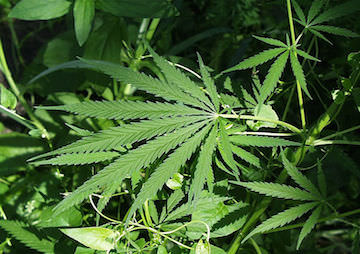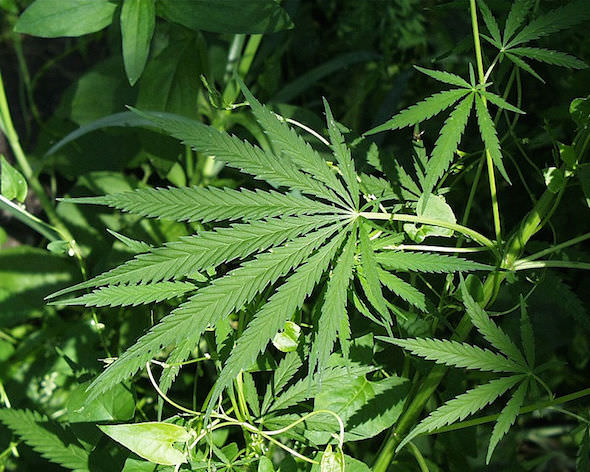Mexico’s Supreme Court Rules That Smoking Pot Is a Fundamental Human Right
The motion represents a sharp challenge to the country's strict drug laws, adding the court's weight to the growing debate in Latin America over the costs and consequences of the war on drugs.

Mexico’s Supreme Court opened the door Wednesday to legalizing marijuana, ruling 4 to 1 that outlawing the possession and use of the marijuana plant constitutes a violation of fundamental human rights.
The motion represents a sharp challenge to the country’s strict drug laws, adding the court’s weight to the growing debate in Latin America over the costs and consequences of the war on drugs.
While Wednesday’s ruling does not signify that marijuana is now legal in Mexico, as it only applies to the four plaintiffs in this specific case, “it’s really a monumental case,” according to Hannah Hetzer of the Drug Policy Alliance, a drug reform advocacy group. “It was argued on human rights grounds, which is unusual, and it’s taking place in Mexico, the epicenter of some of the worst effects of the war on drugs,” Hetzer said.
From The Washington Post:
The case was brought by four members of Mexicans United for Responsible and Tolerant Consumption (the acronym SMART in Spanish), a group set up specifically to challenge laws on this issue in Mexico. Starting in 2013, they began filing legal arguments to be able to grow, possess and consume marijuana. This year, their appeals made it all the way to the Supreme Court.
Their argument hinges on the concept of “the right to the free development of one’s personality,” which is enshrined in Mexico’s constitution. Essentially, it amounts to something like a right to self-determination: The state can’t prevent you from say, eating junk lots of junk food, even if it’s not great for your health. As long as you’re not harming other people, you have the right to autonomy. And in this instance, the Supreme Court ruled that possessing and consuming marijuana falls under this category.
Because of the way Supreme Court cases work in Mexico, the ruling means that the plaintiffs can now smoke up if they want to — but it does not immediately become the law of the land as it would in the United States. For that to happen, the court would have to hand down similar rulings for at least four other individuals or groups.
Big social issues have been decided this way before in Mexico — most notably, the country legalized same-sex marriage via this process earlier this year. Beyond that, lawmakers could decide to change the law through legislation.
The ruling does not extend to commercial marijuana enterprises, like the ones that exist in Washington and Colorado in the United States. But it does represent, perhaps, the first declaration of the right to use marijuana as a fundamental human right. And that could have rippling effects in other Latin American countries, like Uruguay and Chile, currently grappling with various marijuana legalization measures.
The ruling also puts additional pressure on the United Nations to update its decades-old system of drug treaties at a special session on drugs being held next year. Given marijuana developments in the United States and now Mexico, many drug policy experts say the U.N. must change the treaties if it is to maintain legitimacy. If this doesn’t happen, “more nations will move ahead unilaterally and then the conventions start to become irrelevant and nobody wants that,” says the Drug Policy Alliance’s Hetzer.
to read the rest.
–Posted by Roisin Davis
This year, we’re all on shaky ground, and the need for independent journalism has never been greater. A new administration is openly attacking free press — and the stakes couldn’t be higher.
Your support is more than a donation. It helps us dig deeper into hidden truths, root out corruption and misinformation, and grow an informed, resilient community.
Independent journalism like Truthdig doesn't just report the news — it helps cultivate a better future.
Your tax-deductible gift powers fearless reporting and uncompromising analysis. Together, we can protect democracy and expose the stories that must be told.
This spring, stand with our journalists.
Dig. Root. Grow. Cultivate a better future.
Donate today.








You need to be a supporter to comment.
There are currently no responses to this article.
Be the first to respond.